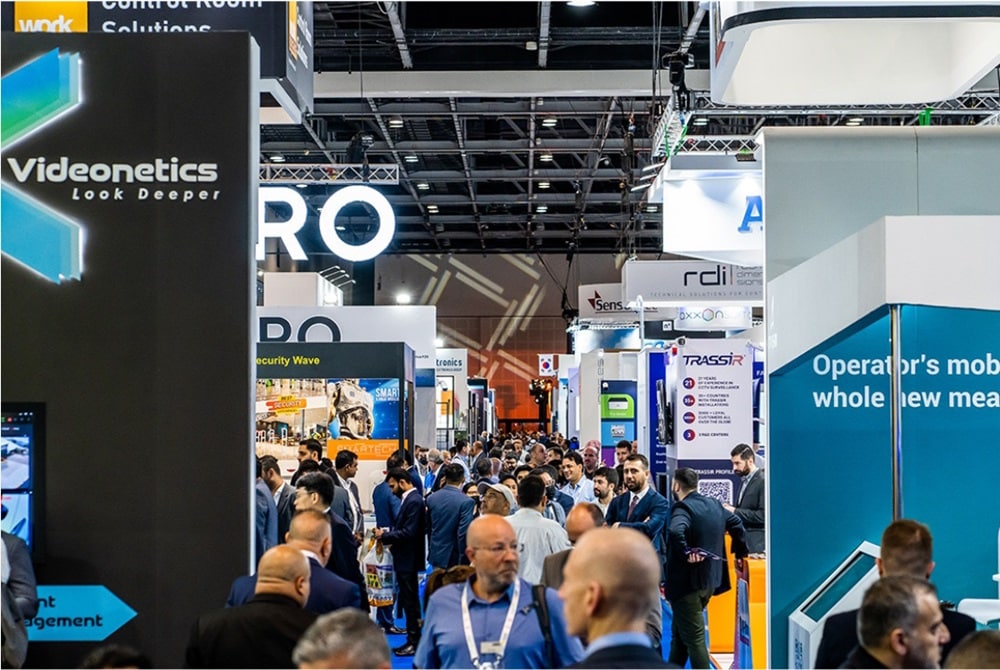According to the latest International Air Transport Association (IATA) figures, the Middle East continues to see strong post-pandemic airline passenger traffic, with regional airlines seeing a 26.6% increase in September traffic compared to 2022. Partly because of this, emerging security challenges and threats to the aviation industry in the Middle East will be discussed in detail at Intersec 2024, which takes place from 16-18 January 2024 at the Dubai World Trade Centre (DWTC).
Aaron Le Boutillier, Regional VP at ASIS International and CEO at LBG Le Boutillier Group, who is speaking ahead of the Security Leader’s Summit at Intersec 2024, believes these threats can be defined as political instability and conflicts, geopolitical tensions and the increased threat of cyber-attacks, and the need to develop advanced cybersecurity protocols and technologies to protect critical infrastructure, aircraft systems and passenger data.
“The success of regional aviation security can be attributed to the fact that some of the major airports in the Middle East region, like Dubai International Airport, Abu Dhabi International Airport and Hamad International Airport, have invested heavily in advanced technologies and infrastructure, such as state-of-the-art passenger screening systems, advanced baggage screening technologies, and increased development of security personnel, now showing tangible results,” he said.
Another key trend is the strong collaboration with international organisations, such as the International Civil Aviation Organisation (ICAO) and the Transportation Security Administration (TSA), to enhance aviation security with a clear strategy to constantly update and implement regulations and security protocols to align with international standards, an Intersec press release said.
Le Boutillier added: “International collaboration among airlines, airports, and regulatory authorities in strengthening aviation security is key to improving overall aviation security, and this is clearly seen in the Middle East with strong alliances with ICAO and TSA, which ultimately lead to more efficient security processes.”
Discussing how the aviation industry can balance stringent security measures with providing passengers a seamless and pleasant experience, Le Boutillier highlighted several strategies available to stakeholders, such as a more efficient pre-screening process and biometric systems, which could expedite security checks and better training and communication.
According to an IATA study, 75% of passengers want to use biometric data instead of passports and boarding passes, and over a third have already experienced using biometric identification in their travels. In November 2022, Emirates Airlines introduced the fast-track of international passengers using biometric data, while Riyadh Airports Company, which operates and manages King Khalid International Airport, successfully ran trials of a facial recognition technology in February 2023.
Grant Tuchten, Portfolio Director at Intersec organiser Messe Frankfurt Middle East, said: “The aviation industry has undergone a massive digital overhaul in the last few decades, with technological advancements significantly enhancing safety, efficiency, and service quality, but also expanding the potential for cyber threats. To maintain safety and reliability, the Security Leader’s Summit allows the industry to deepen its understanding of security measures and enhance cooperation among stakeholders to counter these risks effectively. Intersec will also host world-leading technology exhibitors supporting innovation within the aviation security sector, including Nuctech, Linev System, Astrophysics, Garrett, and new exhibitors Rapsican and Vita Detection.”
Intersec’s 25th edition, held under the patronage of His Highness Sheikh Mansoor Bin Mohammed bin Rashid Al Maktoum, marks a quarter-century of innovation in security tech. With 1,000 exhibitors from 60 nations and 45,000 trade visitors, the event is a global hub for security, safety, and fire protection industries.
This jubilee edition will host a diverse range of conference programmes like Cyber Security, Safety & Health, Fire & Rescue, with features like the Thought Leadership Pavilion and Intersec Awards.
Divided into five broad product sections, the event provides tailored solutions for Commercial & Perimeter Security, Homeland Security & Policing, Fire & Rescue, Safety & Health, and Cyber Security, fostering innovation and connectivity across sectors.
For more Intersec news, click here






